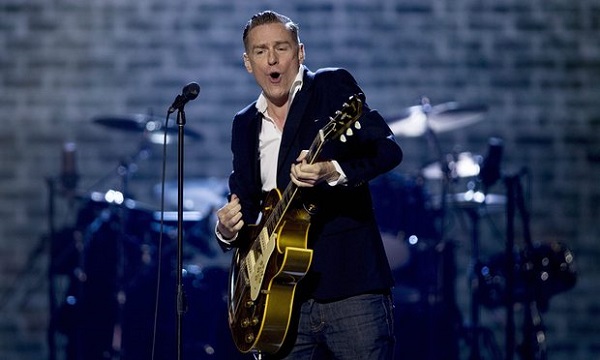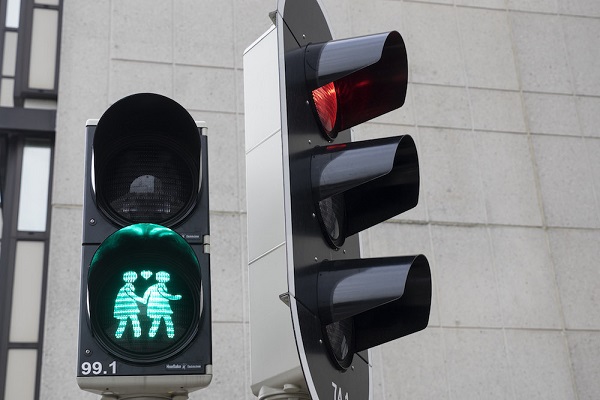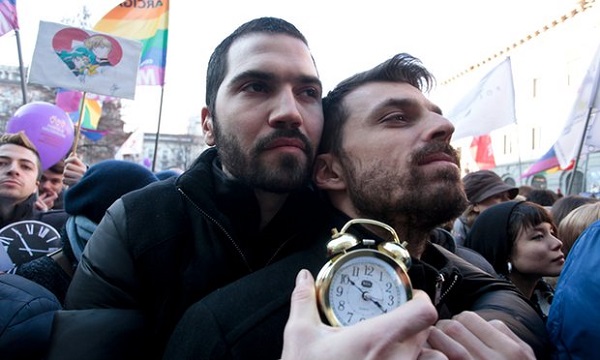Dark trends and tragic events make the teaching of LGBT equality even more essential. Andrew Moffat explains how assemblies can be a useful platform.

Assemblies are a great tool to use when creating the school ethos around equality. The assembly is a place where the code of conduct for the school is delivered clearly and consistently to everyone; there is no better place to promote and celebrate confident messages of difference, diversity and acceptance.
At my own school we talk about a culture of ‘No Outsiders’ because everyone is an ‘insider’. We use the Equality Act 2010 and celebrate the protected characteristics; we teach respect for race, religion, gender, gender identity, sexual orientation, disability and age and everyone is welcome.
I work in a large primary school in central Birmingham where 98% of our children practice the Islamic faith, so in reality, examples of diversity within the school walls can be difficult to identify.
We have to bring the diverse outside world into school at every opportunity and we do this every day at the start of assembly using pictures.
I spend my Saturday mornings searching the internet for images to use the following week in assembly that demonstrate our No Outsiders ethos in practice around the world. My aim is to show our children that it is not only us believing in No Outsiders; people across the globe agree with us. This is particularly important at a time when our children are hearing messages on the news about terrorism, refugees and hate.
The message I give to our children is that while we know not everyone agrees with us or No Outsiders, I can show you lots of things that happened this week in different parts of the world that show we are not alone in our belief.
When teaching LGBT equality, assembly pictures are a fantastic resource. There may not be LGBT role models in school so the pictures give us an opportunity to demonstrate the diversity that exists outside the school gates.
The following are examples of assembly pictures I have used in KS2 assemblies over the last six months and they could also be used as effectively in secondary schools.

In April 2016, singer Bryan Adams cancelled a show in Mississippi, North Carolina, because the state passed a law which allows discrimination against LGBT people. The law said businesses or churches can refuse to serve LGBT people and also discriminated against people who are transgender.
Bryan Adams made a statement, saying he, ‘could not, in good conscience, perform in a state where certain people are being denied their rights due to their sexual orientation’. He says he found it, ‘incomprehensible that LGBT citizens are being discriminated against... hopefully Mississippi will right itself and I can come back and perform to all of my many fans’.
Bruce Springsteen also cancelled a concert. Cyndi Lauper released a statement saying she would play in Mississippi because she wanted to use her concert to spread a different message and would donate all proceeds to LGBT charities in the state.
The discussion we had in the assembly about the picture focused on two things. Firstly, was Bryan right to cancel or was Cyndi right to play and encourage dialogue? Who would have more effect?
There is, of course, no right or wrong answer but I am encouraging our children to develop their own opinions and responses.
Secondly, how has a law like that been passed in Mississippi? What do we think about that law? If the law allowed discrimination against different races, genders or faith, would it be acceptable? What law do we have in the UK today that means this could not happen here? Why is our No Outsiders message so important? If you could speak to the Governor of Mississippi, what would you say?

Photo: Bas de Meijer / Hollandse Hoogte
In March 2016 the Dutch city, Utrecht, installed traffic lights that showed two men and two women holding hands to cross the road. Councillor Kees Geldofr says, ‘They show Utrecht as a many-sided city, and they do give cause for reflection as you are waiting for the lights to change.'
A number of cities in Austria also have traffic lights showing gay couples. When they were installed in 2014 some people were unhappy and tried to have the lights changed but the council decided to keep them.
Questions to discuss: Why do you think the council in Utrecht has installed lights showing gay couples? What is the message to the people in the city?
Some people complained when these lights were installed in Austria but the council kept them. This shows us that although not everyone agrees with us and No Outsiders, there are more people that do agree. This is why it’s so important that we talk about No Outsiders to help change minds when there is discrimination.

Photograph: Federico Ferramola/NurPhoto/Corbis
In January 2016 the Italian government debated same sex civil unions. Italy is the last Western European country to allow same sex unions and the weekend before the debate there were demonstrations across the country where people held up alarm clocks to say, ‘Wake up Italy!’
Questions to discuss: What do the two men in the picture want to do? Why can’t they get married? Can two men or two women get married in the UK? What law in the UK means LGBT people cannot face discrimination? Why are the men holding an alarm clock? We know not everyone agrees with us and No Outsiders, what would you say to the Prime Minister of Italy about No Outsiders?
For more assembly pictures about all protected characteristics in the Equality Act 2010 go to the Assembly Picture blog.
More on the Optimus blog